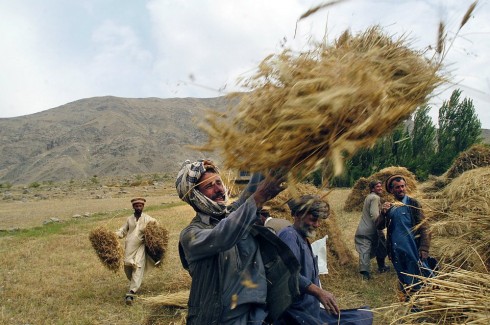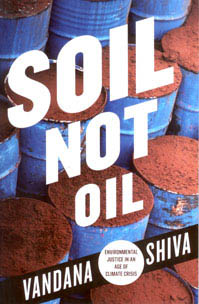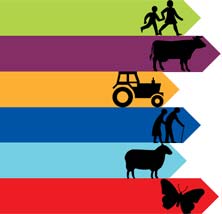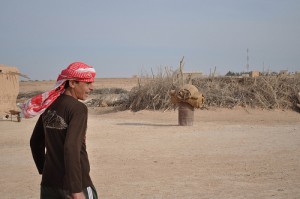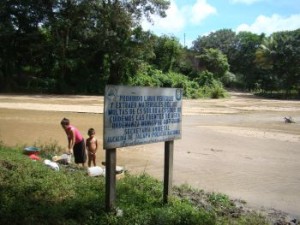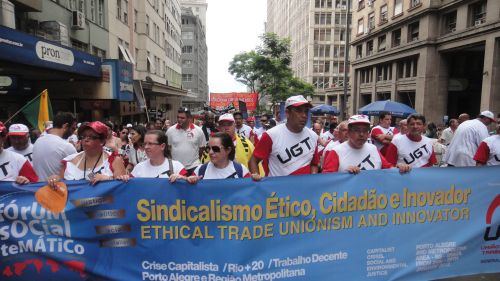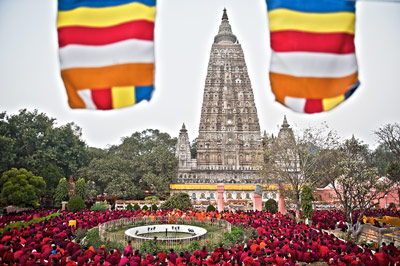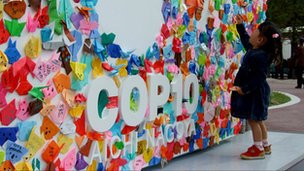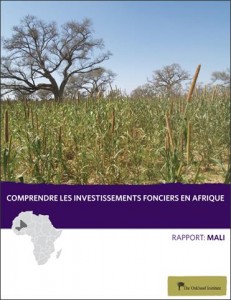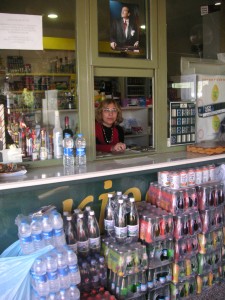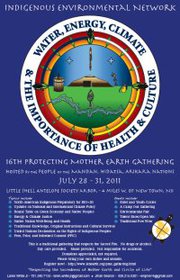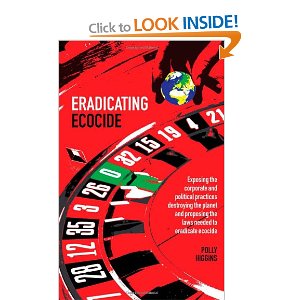SAVE MOTHER EARTH
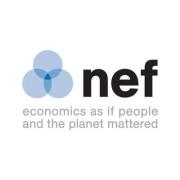
nef – Festival of Transition events 20th June
http://www.neweconomics.org
Head over to the Festival website at www.festivaloftransition.net and get involved!
Sustainability is the capacity to endure. For humans, sustainability is the long-term maintenance of responsibility, which has environmental, economic, and social dimensions, and encompasses the concept of stewardship, the responsible management of resource use. In ecology, sustainability describes how biological systems remain diverse and productive over time, a necessary precondition for the well-being of humans and other organisms. Long-lived and healthy wetlands and forests are examples of sustainable biological systems.
http://en.wikipedia.org/wiki/Sustainability
nef (the new economics foundation) is an independent think-and-do tank that inspires and demonstrates real economic well-being.
We aim to improve quality of life by promoting innovative solutions that challenge mainstream thinking on economic, environment and social issues. We work in partnership and put people and the planet first.
nef was founded in 1986 by the leaders of The Other Economic Summit (TOES) which forced issues such as international debt onto the agenda of the G7 and G8 summits.
We are unique in combining rigorous analysis and policy debate with practical solutions on the ground, often run and designed with the help of local people. We also create new ways of measuring progress towards increased well-being and environmental sustainability.
nef works with all sections of society in the UK and internationally – civil society, government, individuals, businesses and academia – to create more understanding and strategies for change.
Read our Review of the Year 2010-2011 here.
On June 20, while the Rio conference takes place, instead of waiting for disappointment, several groups have organised a Festival of Transition, which anyone can enjoy and contribute to, wherever they are. It asks simply that people take a taste of breaking with business as usual by doing something different for 24 hours themselves, where they are, with friends, work colleagues or neighbours.“ – Andrew Simms, Rio+20: don’t wait for disappointment from the bureaucrats, http://gu.com/p/38396
The future is hard to predict but one way or another our economy and society will change dramatically as we adapt to the end of cheap fossil fuels, address the threat of runaway climate change and fix our broken financial system. A new, positive approach to this transition is emerging which sees it as an opportunity to change all of our lives for the better.
The Festival of Transition is a series of events, talks and walks up and down the country culminating in a nationwide day of action and re-imagining on Wednesday 20th June 2012, the first day of the UN Earth Summit in Rio. It’s an invitation to explore how overcoming big challenges can lead to better lives for us all.
Tickets still available for many of the walks and talks in the run up to the 20th.
Previous #articles #video #RIO +20
http://www.facebook.com/neweconomics
http://www.transitiontowntotnes.org/about/what-is-transition/what-economic-crisis
“Our food systems create sick people” – UN rights expert
“Our food systems create sick people” – UN rights expert
Do you agree? Like and share
Five ways to tackle the public health disaster of bad diets– UN expert on the right to food
GENEVA (6 March 2012) – “Our food systems create sick people,” warned today United Nations Special Rapporteur on the right to food, Olivier De Schutter. “One in seven people globally are undernourished, but many more suffer from the ‚hidden hunger‘ of micronutrient deficiency, while 1.3 billion are overweight or obese.”
“Faced with this nutritional crisis, we need to tackle the systemic problems which generate poor nutrition,” the independent expert said as he presented his report* on the agriculture-food-health nexus to the UN Human Rights Council. “However, we continue to prescribe remedies like a doctor: nutrition pills and early-life nutrition strategies for those lacking in calories; slimming pills, lifestyle advice and calorie counting for the overweight.”
In his report, Mr. De Schutter identifies five priority actions for putting nutrition at the heart of food systems in the developed and developing world:
- taxing unhealthy products;
- regulating foods high in saturated fats, salt and sugar;
- cracking down on junk food advertising;
- overhauling wrong-headed agricultural subsidies which make certain ingredients cheaper than others;
- and supporting local food production so that consumers have access to healthy, fresh and nutritious foods.
“Urbanization, supermarketization and the global spread of Western lifestyles have shaken up traditional food habits. The result is a public health disaster,” the Special Rapporteur said. “Governments have been focusing on increasing calorie availability, but they have often been indifferent to what kind of calories are on offer, at what price, to whom they are accessible, and how they are marketed.”
“We have deferred to food companies the responsibility for ensuring that a good nutritional balance emerges. Voluntary guidelines and piecemeal nutrition initiatives have failed to create a system with the right signals, and the odds remain stacked against the achievement of a healthy, balanced diet,” he said.
“The right to food means not only access to an adequate quantity of food, but also the ability to have a balanced and nutritious diet,” Mr. De Schutter noted. “Governments must not abstain from the responsibility to secure this right.”
The Special Rapporteur also identified the abundance of processed food as a major threat to improving nutrition. “Heavy processing thrives in our global food system, and is a win-win for multinational agri-food companies. Processed items can be produced and distributed on a huge scale, thanks to cheap subsidized ingredients and their increased shelf life.”
“But for the people, it is a lose-lose,” he stressed. “Heavily processed foods lead to diets richer in saturated and trans-fatty acids, salt, and sugars. Children become hooked on the junk foods targeted at them. In better-off countries, the poorest population groups are most affected, because foods high in fats, sugar and salt are often cheaper than healthy diets, as a result of wrong-headed subsidies whose health impacts have been wholly ignored.”
The UN expert noted that the West is now exporting diabetes and heart disease in developing countries, along with the processed foods which line the shelves of global supermarkets. By 2030, more than 5 million people will die each year before the age of 60 from non-communicable diseases linked to diets.
“We should not simply invest our hopes in medicalizing our diets with enriched products, or changing people’s choices through health warnings. Ambitious, targeted nutrition strategies can work, but only if the food systems underpinning them are put right,” the Special Rapporteur said.
Olivier De Schutter was appointed the Special Rapporteur on the right to food in May 2008 by the UN Human Rights Council. He is independent from any government or organization.
http://www.ohchr.org/Documents/HRBodies/HRCouncil/RegularSession/Session19/A-HRC-19-59_en.pdf
For the full briefing note entitled The World Trade Organization and the Post-Global Food Crisis Agenda: Putting Food Security First in the International Food System, visit: http://www.ohchr.org/Documents/Issues/Food/BN4_SRRTF_WTO_EN.pdf or http://www.srfood.org/images/stories/pdf/otherdocuments/20111116_briefing_note_05_en.pdf
For more information on the mandate and work of the Special Rapporteur, visit: http://www2.ohchr.org/english/issues/food/index.htm or www.srfood.org
Press contacts:
Yoonie Kim or Ulrik Halsteen (OHCHR): +41 22 917 9643 / 9323 / srfood@ohchr.org
UN Human Rights, follow us on social media:
Facebook: https://www.facebook.com/unitednationshumanrights
Twitter: http://twitter.com/UNrightswire
YouTube: http://www.youtube.com/UNOHCHR
Check the Universal Human Rights Index: http://uhri.ohchr.org/en
http://www.facebook.com/ANHInternational
http://www.facebook.com/organicconsumers
http://www.facebook.com/FoodandWaterWatch US , http://foodwatch.de/
http://bikyamasr.com/60747/un-expert-calls-for-junk-food-tax
http://www.foodsovereignty.org http://www.foodsov.org
http://en.wikipedia.org/wiki/Fat_tax
http://en.wikipedia.org/wiki/Right_to_food
http://en.wikipedia.org/wiki/Food_security
http://en.wikipedia.org/wiki/Agricultural_subsidy
Who Will be The Biggest Farm Bill Loser?
Soil Association annual conference 2012
Soil Association annual conference 2012
Facing the future: Innovation in food and farming
Royal Horticultural Halls, London
02 March 2012 http://www.soilassociation.org/conference
The Soil Association’s Conference 2012 will celebrate innovation in food and farming today. We will explore this through the two major themes of our strategy: Facing the Future, which explores the exciting scientific and technical progress being made in organic and low-input farming systems; and Good Food for All, which contributes to the important debate about food, public health and social justice.
The future of our food is in flux. According to the United Nation’s Food and Agriculture (UNFAO) special Rapporteur, Olivier de Schutter http://www.srfood.org/, ‘keeping blindly on the track of industrial agriculture is clearly unsustainable.’ If this is the case, then we need to galvanize the finest thinkers, technologists, scientists, farmers, entrepreneurs and teachers to develop new and sustainable ways of feeding a growing world population now and in the future.
In addition, the growing challenge of diet-related ill-health, in the UK and internationally, means that we need to explore the relationship between food production and its consumption. With a world that has approximately 1 billion people malnourished and 1 billion obese, there is a powerful case for bringing public health and nutritional expertise to the farming and food production table, to innovate joined-up solutions for our food future.
Navdanya
http://www.navdanya.org/campaigns
Navdanya means “nine seeds” (symbolizing protection of biological and cultural diversity) and also the “new gift” (for seed as commons, based on the right to save and share seeds In today’s context of biological and ecological destruction, seed savers are the true givers of seed. This gift or “dana” of Navadhanyas (nine seeds) is the ultimate gift – it is a gift of life, of heritage and continuity. Conserving seed is conserving biodiversity, conserving knowledge of the seed and its utilization, conserving culture, conserving sustainability.
Navdanya is a network of seed keepers and organic producers spread across 16 states in India.
Navdanya has helped set up 65 community seed banks across the country, trained over 5,00,000 farmers in seed sovereignty, food sovereignty and sustainable agriculture over the past two decades, and helped setup the largest direct marketing, fair trade organic network in the country.
Navdanya has also set up a learning center, Bija Vidyapeeth (School of the Seed) on its biodiversity conservation and organic farm in Doon Valley, Uttarakhand, North India.
2011 marked Earth University/Bija Vidyapeeth’s 10 year anniversary. Located on Navdanya’s Biodiversity and Conservation Farm, Navdanya offers celebrated courses for students to partake in from all over the world.
Our Vision
Vision Statement
“Navdanya’s vision is to accomplish such a development that all beings have a healthy environment to live, should have enough healthy food to eat and also have equal right to live, grow and evolve to their full potential through their self organisation”.
…………………………………………………………………………………………………
http://www.un.org/en/documents/udhr/index.shtml
Article 25 of United Nations Universal Declaration of Human Rights –
Everyone has the right to a standard of living adequate for the health and well-being of themselves and their family, including food, clothing, housing and medical care and necessary social services, and the right to security in the event of unemployment, sickness, disability, widowhood, old age or other lack of livelihood in circumstances beyond their control.
http://www.facebook.com/soilassociation
http://www.facebook.com/pages/Navdanya
Was wären die Schwaben ohne ihre Linsen?
>>> Traditional Food, Medicine & Biodiversity
>>> The Coming Famine: The Global Food Crisis and What We Can Do to Avoid It
Previous #articles #videos on #foodsecurity #agriculture #biodiversity
http://www.scidev.net/en/science-and-innovation-policy/science-at-rio-20
Live Webcast: Public Welcome Ceremony for Archbishop Desmond Tutu
http://www.tutu.org The Desmond Tutu Peace Centre
We are having technical problems with the broadcast, we apologize for any inconvenience. The video will be available on www.dalailama.com after the event.
There will be a live webcast of the public ceremony welcoming Archbishop Desmond Tutu on his visit to meet with His Holiness the Dalai Lama in Dharamsala, India, on February 10th at 10:30-11:30 am Indian Standard Time.
The ceremony will be available for viewing and download after the event on http://www.dalailama.com (Russian translation available at http://dalailama.ru/top/974-dalai-lama.html)
For times in your region, 10:30am February 10th in Dharamsala, India, is the same as 9:00 pm February 9th in Los Angeles, California, USA.
Desmond Mpilo Tutu (born 7 October 1931) is a South African activist and retired Anglican bishop who rose to worldwide fame during the 1980s as an opponent of apartheid. He was the first black South African Archbishop of Cape Town, South Africa and primate of the Church of the Province of Southern Africa (now the Anglican Church of Southern Africa).
Tutu has been active in the defence of human rights and uses his high profile to campaign for the oppressed. He has campaigned to fight AIDS, tuberculosis, homophobia, transphobia, poverty and racism. Tutu received the Nobel Peace Prize in 1984, the Albert Schweitzer Prize for Humanitarianism in 1986, the Pacem in Terris Award in 1987, the Sydney Peace Prize in 1999, the Gandhi Peace Prize in 2005 and the Presidential Medal of Freedom in 2009. Tutu has also compiled several books of his speeches and sayings.
http://en.wikipedia.org/Desmond_Tutu
http://www.nobelprize.org/nobel_prizes/peace/laureates/1984/tutu-lecture.html
Previous #articles #news #social issues #humanrights > desmond tutu

EU Pledges Strong Support for Earth Summit
Through coverage of issues like food security, extractive industries, biodiversity and climate change, IPS aims to give a voice to people whose stories are seldom heard. IPS also hopes to highlight the various challenges they face in this globalised world: health and food insecurity, environment degradation, and poverty.
Hello,
While I’m always passionate about the work I do here at IPS, there’s something else that I’m excited about: Support Your Media Day.
On February 15, 2012, thousands of people are going to put their support behind non-profit, independent media in an unprecedented, 24-hour virtual donation drive. And on that day, every donation and donor IPS gets will help us claim our share of more than $10,000 in grants.
These contributions will fund the critical work we do every day and our unique brand of international reporting. They’ll support our writers, photographers, editors and media trainers throughout the world — from the streets of Damascus to the Dadaab refugee camps, from the Amazon basin to the Mekong Delta — wherever citizens are acting for change.
Support Your Media Day is going to be a big event, and everyone will be talking about it. Please join us. This is your opportunity to sustain reporting and analysis that is especially critical in this time of global upheaval.
We need you to help us with these three things:
- 1) Mark Wednesday Feb. 15 on your calendar, bookmark this giving link #video http://www.razoo.com/story/ipsnews/ and make a donation to IPS on Support Your Media Day.
- 2) Share this event on Facebook and Twitter and help build the buzz. You can tweet about this day using #supportyrmedia.
- 3) Spread the word! Forward this email to your family and friends along with a personal note explaining why you believe in our work, and why they should give on Feb. 15.
Support your media. Support IPS. We can’t wait to celebrate the difference your generosity will make.
 Sincerely,
Sincerely,Mario Lubetkin
Director-General, IPS
Some stories in this selection were produced by Tierramérica, a specialised information service on environment and development created by IPS in Latin America and sponsored by UNEP, UNDP and the World Bank. This newsletter includes independent IPS news coverage financed by the Finnish Ministry of Foreign Affairs.
These newsletter includes news coverage which is part of a project funded by the European Union
The contents of this news coverage, including any funded by the European Union, are the sole responsibility of IPS and can in no way be taken to reflect the views of the European Union.
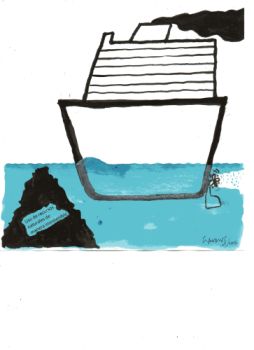
2012/2/2 From the Frontline of Environment
Through coverage of issues like food security, extractive industries, biodiversity and climate change, IPS aims to give a voice to people whose stories are seldom heard. IPS also hopes to highlight the various challenges they face in this globalised world: health and food insecurity, environment degradation, and poverty.
2011 – A Year of Weather Extremes, with More to Come
Analysis by Janet Larsen and Sara Rasmussen*
WASHINGTON, Feb 1 – The global average temperature in 2011 was 14.52 degrees Celsius (58.14 degrees Fahrenheit). According to NASA scientists, this was the ninth warmest year in 132 years of recordkeeping, despite the cooling influence of the La Niña atmospheric and oceanic circulation pattern and relatively low solar irradiance.
MORE >> http://ipsnews.net/news.106616
OP-ED: After Durban, Latin America Looks Towards Rio+20
Ede Ijjasz-Vásquez*
WASHINGTON, Jan 31 (Tierramérica) – After the climate change negotiations in Durban, South Africa in December, there is space to continue advancing in the short and medium term. Now the attention of Latin America and the rest of the world is turned towards the United Nations Conference on Sustainable Development taking place this June in Rio de Janeiro.
In Durban, delegates from 194 countries agreed to develop a new global climate pact by 2015, which would enter into force in 2020. MORE >> http://ipsnews.net/106606
Local residents continue to use water from the depleted Coco River, despite the signs prohibiting it.
http://en.wikipedia.org/Right_to_water This article is about a right to water as a human right under international law. For a discussion of water usage laws in common law, see Water right.
NICARAGUA-HONDURAS: Re-Greening the Border
José Adán Silva*
MANAGUA, Jan 31 (Tierramérica) – Ignacia Matute looks back nostalgically on the days when the hills around her home in northwestern Nicaragua were blanketed in green, and she woke every morning to the sounds of birds singing in the treetops and the rushing waters of the nearly Coco River.
MORE >> http://ipsnews.net/news.106604
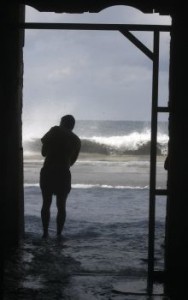 CUBA: Adapting to Climate Change Proves a Complex Challenge
CUBA: Adapting to Climate Change Proves a Complex Challenge
Patricia Grogg
SURGIDERO DE BATABANO, Jan 30 – No one who lives in this fishing village on the south coast, 70 km from the Cuban capital, can forget the devastation wrought by hurricanes in 2008.
Official estimates indicate that 2.32 percent of Cuban territory may be permanently under water by 2050. If the necessary adaptation measures are not taken, as many as 79 coastal settlements will be affected and 15 will completely disappear.
![]() People living in low-lying coastal areas are most exposed to sea-level change.
People living in low-lying coastal areas are most exposed to sea-level change.
![]() She hopes and believes the water won’t reach her new house.
She hopes and believes the water won’t reach her new house.
![]() In the wake of a hurricane in Surgidero de Batabanó.
In the wake of a hurricane in Surgidero de Batabanó.
![]() Risk evaluation is a first step towards a climate change adaptation plan. Credit: Jorge Luis Baños/IPS
Risk evaluation is a first step towards a climate change adaptation plan. Credit: Jorge Luis Baños/IPS
MORE >> http://ipsnews.net/106593
Labour and other activists flood the streets of Porto Alegre in environmental protest.
Thematic Social Forum Awash with Criticism for Green Economy
Clarinha Glock*
PORTO ALEGRE, Brazil, Jan 30 (Tierramérica) – Critical voices raised against what was dubbed „the gospel of green capitalism“ resonated in every discussion and street march held during the Thematic Social Forum, which brought thousands of activists to the capital city of the state of Rio Grande do Sul, in southern Brazil.
Spurred by the global economic and financial crisis, participants at this year’s thematic edition of the World Social Forum, which ran from Jan. 24th through the 29th, called on governments to implement changes in production and consumption, even as they were sceptical that a commitment along those lines could be secured at the United Nations Conference on Sustainable Development (Rio+20), scheduled for June in Rio de Janeiro.
Professor Edgardo Lander, of the Central University of Venezuela and a member of that country’s Social Forum, said there was „an attempt to rebuild capitalism with a new, green face.“
„Rio+20 comes at a time when capitalism faces a profound crisis and when the severe problems arising from the limitations of growth and the destruction of the conditions that make life on the planet possible are more evident,“ he told Tierramérica.
In this context, „green capitalism“ offers a solution to the severe crisis, primarily of the financial sector, through the increasing commodification of everything from education and healthcare to the traditional knowledge of indigenous peoples, he said.
MORE >> http://ipsnews.net/news.106591
U.N. Panel Launches Blueprint for Sustainable Development
Thalif Deen
UNITED NATIONS, Jan 30 – A long-awaited report by a U.N. high-level panel on global sustainability recommends several far-reaching proposals, including the establishment of new institutions and the creation of global indicators, aimed at protecting the world’s environment and strengthening the U.N.’s sustainable development strategy.
MORE >> http://ipsnews.net/news.106590
THEMATIC SOCIAL FORUM: Working Towards a Never-Ending Democracy
Antonio Martins
PORTO ALEGRE, Jan 27 – For five centuries, Europe has taken it upon itself to enlighten the world, teaching it ways to address and overcome crises, from ideas and wars to missionary work and genocides.
MORE >> http://ipsnews.net/news.106576
Some stories in this selection were produced by Tierramérica, a specialised information service on environment and development created by IPS in Latin America and sponsored by UNEP, UNDP and the World Bank. This newsletter includes independent IPS news coverage financed by the Finnish Ministry of Foreign Affairs.
These newsletter includes news coverage which is part of a project funded by the European Union
The contents of this news coverage, including any funded by the European Union, are the sole responsibility of IPS and can in no way be taken to reflect the views of the European Union.
Read more IPS reporting of environment news at: http://www.ipsnews.net/environment.asp
http://www.stwr.org/imf-world-bank-trade
http://www.facebook.com/UN Department-of-Economic-and-Social-Affairs DESA
http://www.amnesty.org/en/economic-social-and-cultural-rights
http://www.facebook.com/ipsenvironment
http://twitter.com/ipsenvironment
http://www.facebook.com/road2rio20
http://www.scidev.net/en/science-and-innovation-policy/science-at-rio-20
Rio+20: Is science getting a say? There’s quite a bit about science in the first draft of the Rio+20 negotiations http://www.facebook.com/scidevnet http://twitter.com/scidevnet

Celebrate the 2012 Sundance Film Festival From Anywhere
http://www.sundance.org/festival
http://www.sundance.org/stories/blog
http://www.sundance.org/programs/native-film
“Storytellers broaden our minds: engage, provoke, inspire, and ultimately, connect us.”
—Robert Redford, President and Founder
The Sundance Film Festival is a film festival that takes place annually in Utah, in the United States. It is the largest independent cinema festival in the United States. HERE
Charity biography #433 Robert Redford has addressed environmental issues in documentaries and film for over 30 years. Read more: http://www.looktothestars.org/celebrity/443-robert-redford
Sundance Institute is a nonprofit organization dedicated to the discovery and development of independent artists and audiences. Through its programs, the Institute seeks to discover, support, and inspire independent film and theatre artists from the United States and around the world, and to introduce audiences to their new work.
Since 1981, Sundance Institute has evolved to become an internationally-recognized nonprofit organization that actively advances the work of risk-taking storytellers worldwide. Originally founded by Robert Redford in the mountains of Sundance, Utah, Sundance Institute has always provided a space for independent artists to explore their stories free from commercial and political pressures. By providing year-round creative and financial support for the development of original stories for the screen and stage, Sundance Institute remains committed to its mission to discover and develop independent artists and audiences across the globe.
#VIDEO 2012 Festival Kickoff http://www.youtube.com/sff
Sundance Film Festival Director John Cooper, and Director of Programming Trevor Groth, share some of the great things about to happen at the 2012 Sundance Film Festival.
Artist Programs
http://www.sundance.org/programs/
Through year-round support, including a series of Labs and Fellowships for screenwriters, directors, documentarians, producers, composers, and theatre artists, the Institute’s artist programs have supported more than 5,000 artists and their films.
Feature Film
The longest-running of Sundance Institute’s artist development programs, the Feature Film Program (FFP) was founded in 1981 and has since supported more than 500 independent filmmakers whose distinctive, singular films have engaged audiences worldwide. We hope to embrace the unique vision of each filmmaker we support and encourage a rigorous creative process with a focus on original storytelling. Led by Michelle Satter, each year the Program advances the work of as many as 65 emerging filmmakers from the U.S. and around the world through a year-round continuum of support from development, to production and postproduction, all the way through to festival strategy and creative marketing/distribution.
#video http://www.aiweiweineversorry.com
http://filmguide.sundance.org/ai_weiwei_never_sorry
Ai Weiwei is China’s most famous international artist, and its most outspoken domestic critic. Against a backdrop of strict censorship and an unresponsive legal system, Ai expresses himself and organizes people through art and social media. In response, Chinese authorities have shut down his blog, beat him up, bulldozed his newly built studio, and held him in secret detention.
AI WEIWEI: NEVER SORRY is the inside story of a dissident for the digital age who inspires global audiences and blurs the boundaries of art and politics. First-time director Alison Klayman gained unprecedented access to Ai while working as a journalist in China. Her detailed portrait provides a nuanced exploration of contemporary China and one of its most compelling public figures.
http://www.financialtaskforce.org/2011/12/07/an-artists-stand
Ai Weiwei is known for many things—great architecture, subversive in-your-face art, and political activism. He has also called for greater transparency on the part of the Chinese state. Director Alison Klayman chronicles the complexities of Ai’s life for three years, beginning with his rise to public prominence via blog and Twitter after he questioned the deaths of more than 5,000 students in the 2008 Sichuan earthquake. The record continues through his widely publicized arrest in Beijing in April of 2011. As Ai prepares various works of art for major international exhibitions, his activism heats up, and his run-ins with China’s authorities become more and more frequent.
In this unprecedented look at Ai and those close to him, Klayman’s camera captures his forthrightness and unequivocal stance. She gives a larger picture of the artist as an individual, a symbol of China’s oppression, and a powerful voice against a country that still denies its citizens many basic freedoms. – K.Y.
http://www.sundance.org/filmforward/destinations
http://www.sundance.org/filmforward/destination/china-2012/
Sundance Spotlights Spacey’s Wall Street Boss,
Al Pacino’s Cop
http://www.bloomberg.com/news/2012-01-17/austerity-wrong-way-to-fight-eu-crisis-stiglitz.html
Two movies about the *financial crisis — a drama starring Kevin Spacey and a documentary featuring Nobel Prize-winner Joseph Stiglitz — will be showcased at the Sundance Film Festival opening today in Utah.
On China, Stiglitz said an easing in its economic expansion to 7 percent to 8 percent is in some sense probably a “good thing.” He later told reporters at a Hong Kong briefing growth in the world’s second-largest economy is now more “sustainable.”
http://genevalunch.com/blog/2011/11/29/swiss-chinese-free-trade-good-progress-made
http://en.wikipedia.org/wiki/List_of_bilateral_free_trade_agreements
Not to be confused with Free market or Fair Trade. http://en.wikipedia.org/wiki/Free_trade
In “Margin Call,” Spacey plays an executive at a troubled Wall Street investment firm during the early days of the economic meltdown. “The Flaw,” directed by British filmmaker David Sington, explores the causes of the crisis through interviews with leading economists, Wall Street insiders and victims of the Great Recession.
Celebrate the 2012 Sundance Film Festival From Anywhere
Digital Initiatives Bring the Festival to You!
Livestream Events │ Exclusive Online Content │Social Media
We’re working to improve your experience on our site. Please click to offer your feedback.
http://www.sundance.org/video/live/ LIVE Streaming
http://www.facebook.com/sundance
http://twitter.com/sundancefest
Live Webcasts from the Kalachakra Teaching
There will be live webcasts from the Kalachakra Teaching in Bodh Gaya, Bihar, India, from January 1-10, 2012. His Holiness the Dalai Lama will be teaching in Tibetan and there will be live webcasts in English, Chinese, Russian and Tibetan languages.
All times Indian Standard Time (GMT+5.30)
January 1: Short Teaching
His Holiness will give a short teaching.
Time: 1:00pm – 3:00pm
January 4-6: Preliminary Teachings
His Holiness will give preliminary teachings on Kamalashila’s „The Middling States of Meditation (gomrim barpa)“, Gyalsey Thokme Sangpo’s „37 Practices of A Bodhisattva (laklen sodunma)“, Geshe Langri Thangpa’s „Eight Verses of Training the Mind (lojong tsik gyema)“, Nagarjuna’s „The Praise to the World Transcendent (jigten ley deypar toepa)“ and Khunu Lama Tenzin Gyaltsen’s „The Precious Lamp in Praise of Bodhicitta (jangchup sem kyi toepa rinchen drolma)“.
Times: 1:00pm – 3:30pm each day
January 10: Long life empowerment and offering
A long life empowerment (tsewang) and a ceremony offering prayers for the long life of His Holiness the Dalai Lama will be performed.
Time: 9:00am – 11:00am (approximate time)
January 10: Ceremony honoring His Holiness the Dalai Lama
There will be a public felicitation ceremony for His Holiness.
Time: 1:30pm – 3:00pm
Live English language webcast can be viewed here.
Live Chinese language webcast can be viewed here.
Live Russian language webcast can be viewed here.
Live Tibetan language webcast can be viewed here.
More information and a full schedule of events at:
http://www.kalachakra2012.org/
http://www.facebook.com/DalaiLama
For times in your region 1:00pm Indian Standard Time (IST) on January 1st in India is the same as 7:30am on January 1st in London, England.
http://tibetanyouthcongress.org
http://wiki/List_of_organizations_of_Tibetans_in_exile
http://www.studentsforafreetibet.org
http://www.tchrd.org/ Human Rights Situation in Tibet
https://www.facebook.com/tibetnewsonline
http://www.facebook.com/Tibet Sites
Further Sources #articles #videos #social projects #buddhism:

Lifestyle: Towards a future of life in harmony with nature.
Biodiversity talks end with call for ‚urgent‘ action
www.bbc.co.uk/news/science-environment
For more information visit: www.cbd.int/2011-2020 , www.cbd.int/agro/food-nutrition
People’s Coalition on Food Sovereignty: www.foodsov.org/take-action
The Convention on Biological Diversity (CBD), known informally as the Biodiversity Convention, is an international legally binding treaty. The Convention has three main goals: 1. conservation of biological diversity (or biodiversity);2. sustainable use of its components; and 3. fair and equitable sharing of benefits arising from genetic resources. In other words, its objective is to develop national strategies for the conservation and sustainable use of biological diversity. It is often seen as the key document regarding sustainable development. MORE
The Millennium Development Goals (MDGs) are eight international development goals that all 192 United Nations member states and at least 23 international organizations have agreed to achieve by the year 2015. They include eradicating extreme poverty, reducing child mortality rates, fighting disease epidemics such as AIDS, and developing a global partnership for development. MORE
As the United Nations and the Ministry of Environment of Japan prepare to globally launch the Decade of Biodiversity in Kanazawa, Japan, governments, businesses and ordinary citizens are being asked to do their bit to save our planet’s delicate ecosystem over the next 10 years.
With the COP17 summit in Durban concluding with hopes of a binding agreement on carbon emissions, there is hope that the Decade of Biodiversity can build on this achievement.
Biodiversity is of vital importance to us all as it underpins a wide range of ecosystem services on which we depend. It provides for food security, human health, clean air and water, it contributes to local livelihoods and economic development and is essential in the fight against poverty.
Yet despite its huge importance, the planet’s biodiversity is being lost at an unprecedented rate.
Throughout the United Nations Decade on Biodiversity (2011-202) governments are encouraged to develop, implement and communicate the results of national strategies for implementation of the Strategic Plan for Biodiversity.
However, the initiative will not be without its challenges as governments and business strapped for cash in the current recession deal with a multitude of issues at the same time. So what can realistically be achieved over the next 10 years to prevent the loss of biodiversity? What can governments, business and you, the individual do to help the cause?
The involvement of a wide range of stakeholders, including children and youth, will be key to the success of the Decade. Already the United Nations has recognized the vital importance of our children’s education to the future of the planet. The Secretariat of the Convention on Biological Diversity hosts and coordinates The Green Wave, a project to raise awareness and educate young people – tomorrow’s leaders and citizens – on biodiversity and on actions to preserve life on Earth. Each year, The Green Wave contributes to worldwide celebrations of the International Day for Biological Diversity (IDB).
The Organisation for Industrial, Spiritual and Cultural Advancement (OISCA) has been participating in The Green Wave all over the world since 2009. This year 2011, the International Year of Forests and the starting year of United Nations Decade on Biodiversity, over 14,000 children and adults at 105 OISCA sites in 13 countries have taken part in the campaign.
webTV – Tokyo: In a live and interactive web TV programme from Tokyo, two of the key figures driving the response to the planet’s loss of biodiversity will be answering your questions about the United Nations Decade on Biodiversity. http://www.cbd.int/2011-2020/media/webtv_jp.shtml
Yasuaki Nagaishi, Secretary General of OISCA (Organisation for Industrial, Spiritual and Cultural Advancement) will join with Ahmed Djoghlaf, Executive Secretary of the Convention on Biological Diversity at 20:30 (local time) on Tuesday December 20th to answer your questions.
http://www.350.org/ http://www.facebook.com/350.org
http://en.wikipedia.org/Kyoto Protocol
Previous #articles, #videos:
Japan – Nagoya Biodiversity Agreement
CBD – UN Convention on Biological Diversity
Eradicating Ecocide – Rights for the Planet
http://www.facebook.com/UNBiodiversity
http://www.facebook.com/United Nations Millennium Campaign
http://www.facebook.com/iucn.org

Int. Peasant Conference : Stop the land grab
Threat to Food Security http://allafrica.com/environment/
http://farmlandgrab.org/ http://www.business-humanrights.org/
UPDATE 19.11.2011 Center for Media and Democracy
http://www.facebook.com/CenterforMediaandDemocracy
https://www.facebook.com/FoodRightsNetwork
Join the Food Rights Network in adding what you know about the „Secret Farm Bill“ to the SourceWatch article. http://sourcewatch.org/Secret Farm Bill
Blogger, Attorney http://www.FarmPolicy.com
Contacts International Peasant Conference:
CNOP/VIA CAMPESINA Kalabancoura rue 200 porte 727 BP E 2169 Bamako/Mali
Chantal Jacovetti: chantal.jacovetti@wanadoo.fr Phone : 00223.76.81.87.93/64.86.89.26
Lamine Coulibaly: laminezie@gmail.com Phone: Tel: +223 76 17 09 79/ 66 83 63 14
Via Campesina (from Spanish la vía campesina, the campesino way, or the Peasants‘ Way) describes itself as „an international movement which coordinates peasant organizations of small and middle-scale producers, agricultural workers, rural women, and indigenous communities from Asia, Africa, America, and Europe“. It is a coalition of over 148 organizations, advocating family-farm-based sustainable agriculture and was the group that first coined the term „food sovereignty“. Food sovereignty refers to the right to produce food on one’s own territory. Via Campesina has carried out a Global Campaign for Agrarian Reform since 1999, in opposition to market-led agrarian reform. MORE
Food security hostage to trade in WTO negotiations: UN right to food expert
[16 November 2011] Geneva – „The world is in the midst of a food crisis which requires a rapid policy response. But the World Trade Organisation (WTO) agenda has failed to adapt, and developing countries are rightly concerned that their hands will be tied by trade rules.” http://www.srfood.org/index.php
Press invitation 17-19 November, Mali (Bamako, 28 October 2011) The farmers of the National Coordination of Farming Organizations (CNOP) in Mali and the international farmers’ movement Via Campesina hereby invite the press to cover the first international farmers’ conference whose objective is tostrengthen the fight against the land grabs which are rife in Africa and other parts of the world.
The conference will be held in Sélingué from 17 to 19 November 2011, and will bring together almost 200 farmers affected by land grabs as well as numerous other participants, including researchers, political figures, and NGOs resisting the unprecedented land-grab offensive by large businesses and hedge funds, among others, that compromises the ability of people to feed themselves.
Affected populations from all over the world will have the opportunity to make their voices heard, and strategies will be developed to end the seizure of farmland at the expense of the rural family farming that feeds 80% of the African population.
The conference will conclude on 20 November with a visit by a delegation to the Office du Niger’s land in Kolongo, a year after the first farmers’ meeting about this matter. There, journalists will be able to speak to farmers engaged in the resistance, local authorities, and experts on land issues.
The Oakland Institute As farmer groups and civil society organizations from around the world gather at the International Conference on Land Grabs [DRAFT PROGRAMME http://viacampesina.org/en/index.php] from November 17-20 2011 in Nyeleni, Mali, The Oakland Institute and the National Farmers Organisation Coordination (CNOP) of Mali are releasing a new report on land grabs in the west African country.
Comprendre les Investissements Fonciers en Afrique: Rapport Mali [http://www.oaklandinstitute.org/comprendre-les-investissements-fonciers-en-afrique-rapport-mali] is an updated, French version of the Oakland Institute’s Understanding Land Investment in Africa: Mali report that was published earlier this year.
This comprehensive report analyses the current trend of agricultural land investments in Mali, revealing that by the end of 2010 at least 544,567 hectares of fertile land have been leased or were under negotiation for lease in Mali. Despite the limited availability of arable land in Mali and dramatic hunger figures, more than 40% of deals will devote land to agrofuel crops-which are unlikely to benefit those suffering from hunger in Mali. These land acquisitions involve violent and flagrant abuses of human rights and the report documents attacks on smallholder populations in the irrigated agricultural zones of the Office du Niger. Most of the large-scale land acquisitions are concentrated in state-owned lands within the large, riverine delta of the Office du Niger, where informal customary rights of the local people are not protected by law, and are not recognized by public officials.
Olivier De Schutter — UN Special Rapporteur on the Right to Food — recently released a report extolling the benefits of ecological agriculture. In this short radio interview, he explains how today’s scientific evidence demonstrates that agro-ecological farming methods outperform the use of chemical fertilizers in boosting food production where the hungry live — especially in unfavorable environments.
While the government of Mali justifies the massive leasing of lands with the need to „modernize“ Malian agriculture, plans for large-scale irrigated agriculture pose great risks to the survival of populations dependent on the water flows of the Niger River in Mali as well as in the rest of West Africa, where over 100 million people depend on the river for their livelihoods.
America, it’s your responsibility to decide who will emerge victorious from this battle of the bulge. Let’s meet the contestants — the American consumer, the independent farmer and the corporate fat cat. Watch Food & Water Watch’s The Biggest Farm Bill Loser and go to http://www.foodandwaterwatch.org to demand a Fair Farm Bill!
Download the report: In French: http://www.oaklandinstitute.org/comprendre-les-investissements-fonciers-en-afrique-rapport-mali In English: http://oaklandinstitute.org/understanding-land-investment-deals-africa-mali
Latest Articles – #farmlandgrab
World Social Forum Dakar – Sign the Dakar appeal against land grabbing!! #video
Gegenrede: Offener Brief von Jean Ziegler #video
Eradicating Ecocide – Rights for the Planet #video
Climate Change, Food Sovereignty & Security #video
Africa – Green Agriculture & Climate Change #video
Sustainability and Equity: A Better Future for All
Kate Holt/IRIN
The 2011 Human Development Report, Sustainability and Equity: a Better Future for All, says bold steps must be taken to reduce environmental risks and inequalities in Africa. http://allafrica.com/environment/
According to the 2011 Human Development Report, released by the United Nations Development Programme, Africa’s progress in human development over the next four decades could outpace any other region of the world, but environmental challenges could threaten the continent’s advancement, possibly reversing it.
UPDATE 19.11.2011 Final Declaration: Stop Land-Grabbing Now!
by The Oakland Institute – Nyeleni, November 19, 2011
We, women and men peasants, pastoralists, indigenous peoples and their allies, who gathered together in Nyeleni from 17-19 November 2011, are determined to defend food sovereignty, the commons and the rights of small scale food providers to natural resources. We supported the Kolongo Appeal from peasant organizations in Mali, who have taken the lead in organising local resistance to the take-over of peasants‘ lands in Africa. We came to Nyeleni in response to the Dakar Appeal, which calls for a global alliance against land-grabbing.
In the past three days, peasants, pastoralists and indigenous peoples have come together from across the world for the first time to share with each other their experiences and struggles against land-grabbing. In Mali, the Government has committed to give away 800 thousand hectares of land to business investors. These are lands of communities that have belonged to them for generations, even centuries, while the Malian State has only existed since the 1960-s. This situation is mirrored in many other countries where customary rights are not recognised. Taking away the lands of communities is a violation of both their customary and historical rights.
Secure access to and control over land and natural resources are inextricably linked to the enjoyment of the rights enshrined in the Universal Declaration of Human Rights and several regional and international human rights conventions, such as the rights to an adequate standard of living, housing, food, health, culture, property and participation. We note with grave concern that states are not meeting their obligations in this regard and putting the interests of business interests above the rights of peoples.
Land-grabbing is a global phenomenon led by local, national and transnational elites and investors, and governments with the aim of controlling the world’s most precious resources. The global financial, food and climate crises have triggered a rush among investors and wealthy governments to acquire and capture land and natural resources, since these are the only “safe havens” left that guarantee secure financial returns. Pension and other investment funds have become powerful actors in land-grabbing, while wars continue to be waged to seize control over natural wealth. The World Bank and regional development banks are facilitating land grabs by promoting corporate-friendly policies and laws, facilitating capital and guarantees for corporate investors, and fostering an extractive, destructive economic development model. The World Bank, IFAD, FAO and UNCTAD have proposed seven principles that legitimise farmland grabbing by corporate and state investors. Led by some of the world’s largest transnational corporations, the Alliance for a Green Revolution in Africa (AGRA) aims to transform smallhold agriculture into industrial agriculture and integrate smallhold farmers to global value chains, greatly increasing their vulnerability to land-loss.
Land-grabbing goes beyond traditional North-South imperialist structures; transnational corporations can be based in the United States, Europe, Chile, Mexico, Brazil, Russia, India, China, South Africa, Thailand, Malaysia and South Korea, among others. It is also a crisis in both rural and urban areas. Land is being grabbed in Asia, Africa, the Americas and Europe for industrial agriculture, mining, infrastructure projects, dams, tourism, conservation parks, industry, urban expansion and military purposes. Indigenous peoples and ethnic minorities are being expelled from their territories by armed forces, increasing their vulnerability and in some cases even leading to slavery. Market based, false solutions to climate change are creating more ways to alienate local communities from their lands and natural resources.
Despite the fact that women produce most of the world’s food, and are responsible for family and community well being, existing patriarchal structures continue to dispossess women from the lands that they cultivate and their rights to resources. Since most peasant women do not have secure, legally recognised land rights, they are particularly vulnerable to evictions.
The fight against land-grabbing is a fight against capitalism, neoliberalism and a destructive economic model. Through testimonies from our sisters and brothers in Burkina Faso, Columbia, Guatemala, Democratic Republic of Congo, France, Ghana, Guinea Bissau, Honduras, India, Indonesia, Mali, Mauritania, Mozambique, Nepal, Niger, Senegal, South Africa, Thailand and Uganda, we learned how land-grabbing threatens small scale, family based farming, nature, the environment and food sovereignty. Land grabbing displaces and dislocates communities, destroys local economies and the social-cultural fabric, and jeopardizes the identities of communities, be they farmers, pastoralists, fisherfolk, workers, dalits or indigenous peoples. Those who stand up for their rights are beaten, jailed and killed. There is no way to mitigate the impacts of this economic model and the power structures that promote it. Our lands are not for sale or lease.
But we are not defeated. Through organisation, mobilisation and community cohesiveness, we have been able to stop land-grabbing in many places. Furthermore, our societies are recognising that small-scale, family based agriculture and food production is the most socially, economically and environmentally sustainable model of using resources.
Recalling the Dakar Appeal, we reiterate our commitment to resist land-grabbing by all means possible, to support all those who fight land-grabs, and to put pressure on national governments and international institutions to fulfill their obligations to defend and uphold the rights of peoples. Specifically, we commit to:
- Organise rural and urban communities against land-grabs in every form.
- Strengthen the capacities of our communities and movements to reclaim and defend our rights, lands and resources.
- Win and secure the rights of women in our communities to land and natural resources.
- Create public awareness about how land grabbing is creating crises for all society.
- Build alliances across different sectors, constituencies, regions, and mobilise our societies to stop land-grabbing
- Strengthen our movements to achieve and promote food sovereignty and genuine agrarian reform
In order to meet the above commitments, we will develop the following actions:
- Report back to our communities the deliberations and commitments of this Conference.
- Institutionalise April 17 as the day of global mobilisation against land-grabbing; also identify additional appropriate dates that can be used for such mobilisations to defend land and the commons.
- Develop our political arguments to expose and discredit the economic model that spurs land-grabbing, and the various actors and initiatives that promote and legitimise it.
- Build our own databases about land-grabbing by documenting cases, and gathering the needed information and evidence about processes, actors, impacts, etc.
- Ensure that communities have the information they need about laws, rights, companies, contracts, etc., so that they can resist more effectively the business investors and governments who try to take their lands and natural resources.
- Set up early warning systems to alert communities to risks and threats.
- Establish a Peoples‘ Observatory on land-grabbing to facilitate and centralise data gathering, communications, planning actions, advocacy, research and analysis, etc.
- Strengthen our communities through political and technical training, and restore our pride in being food producers and providers.
- Secure land and resource rights for women by conscientising our communities and movements, targeted re-distribution of land for women, and other actions make laws and policies responsive to the particular needs of women.
- Build strong organisational networks and alliances at various levels–local, regional and international–building on the Dakar Appeal and with small-scale food producers/providers at the centre of these alliances.
- Build alliances with members of pension schemes in order to prevent pension fund managers from investing in projects that result in land grabbing.
- Make our leaders abide by the rules set by our communities and compel them to be accountable to us, and our communities and organisations.
- Develop our own systems of legal aid and liaise with legal and human rights experts.
- Condemn all forms of violence and criminalisation of our struggles and our mobilizations in defense of our rights.
- Work for the immediate release of all those jailed as a result of their struggles for their lands and territories, and urgently develop campaigns of solidarity with all those facing conflicts.
- Build strategic alliances with press and media, so that they report accurately our messages and realities; counter the prejudices spread by the mainstream media about the land struggles in Zimbabwe.
- Develop and use local media to organise members of our and other communities, and share with them information about land-grabbing.
- Take our messages and demands to parliaments, governments and international institutions.
- Identify and target local, national and international spaces for actions, mobilizations and building broad-based societal resistance to land-grabbing.
- Plan actions that target corporations, (including financial corporations), the World Bank and other multilateral development banks that benefit from, drive and promote land and natural resource grabs.
- Expand and strengthen our actions to achieve and promote food sovereignty and agrarian reform.
- Support peoples‘ enclosures of their resources through land occupations, occupations of the offices of corporate investors, protests and other actions to reclaim their commons.
- Demands that our governments fulfill their human rights obligations, immediately stop land and natural resource transfers to business investors, cancel contracts already made, and protect rural and urban communities from ongoing and future land-grabs.
We call all organizations committed to these principles and actions to join our Global Alliance against Land-Grabbing, which we solemnly launch today here in Nyeleni. Globalise the struggle! Globalise hope!
#anatolia #turkey #growth #jobs 14.11.2011

The Woodrow Wilson Int. Center for Scholars

www.world-economy-and-development.org
http://physiciansforhumanrights.org/persecution health workers
The Woodrow Wilson International Center for Scholars (or Wilson Center), located in Washington, D.C., is a United States Presidential Memorial that was established as part of the Smithsonian Institution by an act of Congress in 1968. Named in honor of President Woodrow Wilson (the only President of the United States with a Ph.D.), its mission is:
“to commemorate the ideals and concerns of Woodrow Wilson by: providing a link between the world of ideas and the world of policy; and fostering research, study, discussion, and collaboration among a full spectrum of individuals concerned with policy and scholarship in national and world affairs.”
Purpose: The Center serves as a national memorial to President Wilson established by Congress in 1968 and headquartered in Washington, D.C. It is a nonpartisan institution supported by public and private funds, engaged in the study of national and world affairs. HERE
Having surged to the center of the world’s political and economic stage, China is plagued by contradictions. On the one hand, Maoism is enjoying a comeback: the CCP ax-sickle flag is flying everywhere, “red songs” are back in fashion, loud calls for another “Cultural Revolution” are heard, and jobs in the government and at the state enterprises are once again favored by the young generation.
On the other hand, however, the movement to defend people’s legal rights and interests is stronger than ever, calls for political reform proliferate, and many foreign enterprises are still eager to invest in China. The challenge is to penetrate this confusion and try to divine where China will go in the future. Through an in-depth analysis of China’s actual conditions–the “crossroads” it faces–this presentation will seek to suggest ways to make sense of China’s uncertain future.
Kissinger Institute on China and the United States
Events: China at a Crossroads:
Distress Over Democratization or an Omen of Collapse?
August 04, 2011 // 10:00am — 11:30am
CLICK – THERE WILL BE A LIVE WEBCAST OF THE EVENT
Dateline SBS – “ Chinas Economic Growth looks not so rosy as it seems „
The Woodrow Wilson International Center for Scholars is the national, living memorial honouring President Woodrow Wilson. In providing an essential link between the worlds of ideas and public policy, the Center addresses current and emerging challenges confronting the United States and the world. The Center promotes policy-relevant research and dialogue to increase understanding and enhance the capabilities and knowledge of leaders, citizens, and institutions worldwide. Created by an Act of Congress in 1968, the Center is a nonpartisan institution headquartered in Washington, D.C., and supported by both public and private funds.
NEWS – Bahraini Human Rights Activist Nabeel Rajab to Receive 2011 Ion Ratiu Democracy Award Jul 29, 2011
Nabeel Rajab, a leading human rights activist and president of the Bahrain Center for Human Rights, will receive the 2011 Ion Ratiu Democracy Award, presented annually by the Woodrow Wilson International Center for Scholars.
One of the founders of the human rights movement in Bahrain, Nabeel Rajab is president of the Bahrain Center for Human Rights. Rajab also has been active internationally as deputy secretary general for the International Federation for Human Rights and as the chairperson of CARAM-Asia, a regional network that addresses migration and health issues. He is also a member of the Board of Advisors for the Middle East and North Africa division of Human Rights Watch and a member of an Arab media monitoring group.
The Ion Ratiu Democracy Award aims to bring international recognition to the ideas and accomplishments of individuals around the world who are working on behalf of democracy.
“In such a tumultuous year, Nabeel Rajab’s efforts to peacefully advance democratic freedoms for Bahraini citizens, even in the face of considerable personal peril, are truly exemplary,” said Jane Harman, director, president & CEO of the Woodrow Wilson Center. “He is an exceptional choice to receive the Ion Ratiu Award and I extend my sincerest congratulations.”
http://www.facebook.com/KissingerInstitute
http://www.facebook.com/chinadialogue
http://twitter.com/nabeelrajab
http://www.facebook.com/Bahrain Center for Human Rights
http://en.wikipedia.org/wiki/Bahrain United States Free Trade Agreement
http://en.wikipedia.org/wiki/Foreign relations of the Peoples Republic of China
* Infographic: Map of Pollution Levels in China’s Major River Basins @circleofblue, Great Lakes
* Climate Crisis at the Third Pole, China’s disappearing rivers and lakes @ecobuddhism
ECONOMY OF CHINA CHOKE POINTS: www.hrw.org/asia/CHINA
http://www.greenpeace.org/eastasia/
http://www.srfood.org/country-missions/CHINA PDF
Analysis: What is Plan B if China dumps its U.S. debt? | Reuters
US labour group urges end to Bahrain free trade pact – Arabian Business.com
http://www.business-humanrights.org/CHINA
http://www.minesandcommunities.org/CHINA
http://www.circleofblue.org/waternews/Choke Points/CHINA/US
http://www.internationalrivers.org/CHINA
http://www.laborrights.org/CHINA
http://www.nkeconwatch.com/ NORTH KOREA ECONOMY
Chinese Sea, Arctic, Climate Change, Deep Sea Mining http://www.blacksands.org.nz/
http://en.wikipedia.org/UN Convention on the Law of the Sea
http://en.wikipedia.org/Asian_Dust CHINA GLOBAL
India Institute for Defence Studies and Analyses (IDSA)- CHINA
http://www.india-defence.com/reports
http://www.defenceweb.co.za/CHINA
http://en.wikipedia.org/wiki/China space program
NASA’s Mars Exploration Rover Mission (MER)
http://costofwar.com/en/ #debtceiling http://www.ifamericansknew.org/
Water Wars in the Making: http://en.wikipedia.org/wiki/South North Water TransferProject
http://www.greengrowth.org/rethink.asp UN
http://www.facebook.com/mcampaign
http://en.wikipedia.org/Millennium Development Goals
16th Protecting Mother Earth Gathering
“Energy, Climate, Water and the Importance of Health and Culture.”
July 28 – 31, 2011
Four Bears Park/Little Shell Powwow Grounds
New Town, North Dakota
Hosted by Mandan, Hidatsa, Arikara Nations Community Members
Click here to learn more and register online.
The Indigenous Environmental Network (IEN), a Native national environmental justice advocacy organization, is sponsoring the gathering where educators, indigenous peoples, local community members, youth and elders, and other interested individuals camp outdoors together for four days to collectively discourse and strategize on the resolution of local, national, and international environmental justice and indigenous rights issues through forums of plenary and concurrent workshop sessions.
The theme for the July gathering is “Water, Energy, Climate, and the Importance of Health & and Culture,” which is fitting for the indigenous community hosting PME.
Listen to Crow Voices 87.9 Live Stream. Native Youth explore Radio / Center Pole Web Cast
The new Crow Voices radio http://www.crowvoices.blogspot.com/ will broadcast the upcoming conference of the Indigenous Environmental Network, with Earthcycles and Censored News assisting, from the campground near New Town, ND, July 28–31, 2011.
UN High-Level Meeting on Youth 2011
http://www.un.org/millenniumgoals
http://social.un.org/youthyear
www.world-economy-and-development.org
In December 2009, the United Nations General Assembly adopted resolution 64/134 proclaiming the year commencing 12 August 2010 as the International Year of Youth. The resolution calls upon governments, civil society, individuals and communities worldwide to support activities at local and international levels to mark the event. The International Year of Youth can generate much needed attention for youth participation and youth development and can provide an impetus to partnerships among youth organizations around the world. Youth organizations, governments, and civil society are encouraged to organize activities that promote an increased understanding of the importance and benefits of youth participation in all aspects of society, as well as those that support youth to devote their energy, enthusiasm and creativity to development and the promotion of mutual understanding.
It encourages young people to dedicate themselves to fostering progress, including the attainment of the UN Millennium Development Goals (MDGs), which seek to slash a host of social ills, ranging from extreme poverty and hunger to maternal and infant mortality to lack of access to education and health care, all by 2015. HERE
As part of the International Year of Youth, the General Assembly will hold a high-level meeting on youth on 25 and 26 July 2011. The High Level Meeting will have as its overarching theme “Youth: Dialogue and Mutual Understanding”.
The High Level Meeting on Youth is scheduled to take place from 25 to 26 July 2011 at the General Assembly, United Nations Headquarters in New York.
The high-level meeting will comprise two consecutive informal interactive thematic panel discussions on 25 July 2011 and two plenary meetings on 26 July 2011. The thematic panel discussions will be chaired by Member States at the invitation of the President of the General Assembly and will address the following themes:
Thematic panel discussion 1: Strengthening international cooperation regarding youth and enhancing dialogue, mutual understanding and active youth participation as indispensable elements towards achieving social integration, full employment and the eradication of poverty;
Thematic panel discussion 2: Challenges to youth development and opportunities for poverty eradication, employment and sustainable development.
„Youth should be given a chance to take an active part in the decision-making of local, national and global levels.“ – United Nations Secretary-General Ban Ki-moon.
http://www.youtube.com/unyouthyear2010 Dialogue for Peace: The Impact of Youth
If you are holding an event in celebration of the International Year of Youth (IYY) and would like to register it on our calendar of events, please visit this link: http://social.un.org/iyyevents.
CHANGE YOUR WORLD 2011 If you are holding an event in celebration of the International Year of Youth (IYY) and would like to register it on the calendar of events, please follow these steps:
Step 1. Pledge your commitment on the UN International Year of Youth Calendar of Events page: http://social.un.org/IYYevents/ Don’t forget to title your event “Change Your World + (the name of your event)” .
Step 2. After sending your Waiver of Liability Form to youth@un.org (subject heading: „Change Your World“), you will receive an email with the International Year of Youth logo to use for your event.
Step 3. After this, immediately navigate to our Facebook page. You can upload photos, videos, and a brief description of your initiative.
Make sure to cross-link this FB page with your online accounts and websites to maximize your project’s exposure. Keep in mind, the five projects with the most likes will be presented at the next Global Changemakers Youth Summit and will receive an International Year of Youth poster signed by Monique Coleman, Hollywood star and UN Youth Champion.
http://www.facebook.com/UNyouthyear
http://www.facebook.com/UN Millenium Campaign
http://www.facebook.com/Earth Summit 2012
http://www.facebook.com/road2rio20
http://www.youthforhumanrights.org/
http://www.un.org/documents/udhr/index.shtml
http://en.wikipedia.org/Universal Declaration of Human Rights
Eradicating Ecocide – Rights for the Planet
www.world-economy-and-development.org
www.environmentallawresource.com
www.stwr.org/climate-change-environment
The neologism ecocide can be used to refer to any large-scale destruction of the natural environment or over-consumption of critical non-renewable resources. An early reference in 1969 described it as „Ecocide – the murder of the environment – is everybody’s business.“ Ecocide is also a term for a substance that kills enough species in an ecosystem to disrupt its structure and function. Another example would be a high concentration of pesticide due to a spillage. U.S. environmental theorist and activist Patrick Hossay argues that the human species is committing ecocide, via industrial civilization’s effects on the global environment. Much of the modern environmental movement stems from this belief as a precept.
In April 2010 UK Lawyer Polly Higgins proposed to the United Nations that ecocide be recognised as an international Crime Against Peace alongside Genocide, Crimes of Humanity, War Crimes and Crimes of Aggression, triable at the International Criminal Court. More
Polly Higgins is an international environmental lawyer. She believes that change can happen very quickly. She understands how law can act as a catalyst for global change.
Did you know that every government can implement laws overnight? George Bush used emergency laws to shore up Wall Street at the 11th hour and the UK have used them to pass laws on terrorism. It all depends on whether there is a national emergency. Well, now we have an international emergency. So we can do the same worldwide, and put in place an international law of Ecocide. In truth, it’s not that difficult. All that is required is for every nation to agree to vote on it, and then put it to the vote. It’s that simple. Really.
Proposed definition: Ecocide is the extensive destruction, damage to or loss of ecosystem(s) of a given territory, whether by human agency or by other causes, to such an extent that peaceful enjoyment by the inhabitants of that territory has been severely diminished.
In April 2010 a second international legislative proposal was submitted to the United Nations: for the crime of Ecocide to be implemented as a 5th Crime Against Peace under the Rome Statute.
The proposal of Ecocide as a crime of strict liability would impose a prohibition of environmental damage or destruction over a certain size, duration and severity to apply during peace time. To read more about the proposal, see thisisecocide.com
http://www2.ohchr.org/english/issues/environment
„ERADICATING ECOCIDE“ by Polly Higgins: www.amazon.co.uk/Eradicating-Ecocide-Polly-Higgins
The Millennium Development Goals (MDGs) are eight international development goals that all 192 United Nations member states and at least 23 international organizations have agreed to achieve by the year 2015. They include eradicating extreme poverty, reducing child mortality rates, fighting disease epidemics such as AIDS, and developing a global partnership for development. More
Goal 7: Ensure environmental sustainability
Target 7A: Integrate the principles of sustainable development into country policies and programs; reverse loss of environmental resources
Target 7B: Reduce biodiversity loss, achieving, by 2010, a significant reduction in the rate of loss
The Convention on Biological Diversity (CBD), known informally as the Biodiversity Convention, is an international legally binding treaty. The Convention has three main goals:
1. conservation of biological diversity (or biodiversity);
2. sustainable use of its components; and
3. fair and equitable sharing of benefits arising from genetic resources
In other words, its objective is to develop national strategies for the conservation and sustainable use of biological diversity. It is often seen as the key document regarding sustainable development.
The Convention was opened for signature at the Earth Summit in Rio de Janeiro on 5 June 1992 and entered into force on 29 December 1993.
2010 was the International Year of Biodiversity. The Secretariat of the Convention on Biological Diversity is the focal point for the International Year of Biodiversity. At the 2010 10th Conference of Parties (COP) to the Convention on Biological Diversity in October in Nagoya, Japan, the Nagoya Protocol was adopted.
On 22 December 2010, the UN declared the period from 2011 to 2020 as the UN-Decade on Biodiversity. They, hence, followed a recommendation of the CBD signatories during COP10 at Nagoya in October 2010. More
- http://en.wikipedia.org/Equator_Principles
- www.globalwitness.org www.biodiversityhotspots.org
- www.worldviewofglobalwarming.org
- www.endpoverty2015.org UN Millenium Campaign
- http://farmlandgrab.orgwww.biofuelwatch.org.uk
- Meet Ecocide is a Crime, studies at fb
- Meet United Nations Millennium Campaign, friends, fans
(mehr …)
Africa – Green Agriculture & Climate Change
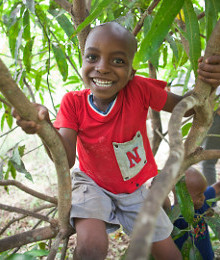
http://kofiannanfoundation.org
Sustainable agriculture is the practice of farming using principles of ecology, the study of relationships between organisms and their environment. It has been defined as „an integrated system of plant and animal production practices having a site-specific application that will, over the long term:Satisfy human food and fiber needs Make the most efficient use of non-renewable resources and on-farm resources and integrate, where appropriate, natural biological cycles and controls Sustain the economic viability of farm operations Enhance the quality of life for farmers and society as a whole. Read More: > Here <
Fair trade is an organized social movement and market-based approach that aims to help producers in developing countries make better trading conditions and promote sustainability. The movement advocates the payment of a higher price to producers as well as social and environmental standards. It focuses in particular on exports from developing countries to developed countries, most notably handicrafts, coffee, cocoa, sugar, tea, bananas, honey, cotton, wine, fresh fruit, chocolate, flowers and gold. Read More: > HERE <
AGRA ALLIANCE works to achieve a food secure and prosperous Africa through the promotion of rapid, sustainable agricultural growth based on smallholder farmers. Smallholders–the majority women–produce most of Africa’s food, and do so with minimal resources and little government support. AGRA aims to ensure that smallholders have what they need to succeed: good seeds and healthy soils; access to markets, information, financing, storage and transport; and policies that provide them with comprehensive support. Through developing Africa’s high-potential breadbasket areas, while also boosting farm productivity across more challenging environments, AGRA works to transform smallholder agriculture into a highly productive, efficient, sustainable and competitive system, and do so while protecting the environment.
AFRICA LOSES ROUGHLY $4 Billion in soil nutrients each year, costing farmers in lost productivity and eroding the continent’s ability to feed itself. But simple solutions can reverse the trend. AGRA’s programs in soil health are working to restore 6.3 million hectares of degraded farmland over 10 years. Whether it’s setting Africa’s first digital soil map to monitor the problem and inform decision making or promoting the use of lime to counteract western Kenya’s acidic soils or increasing the use of fertilizer microdosing by farmers in the Sahel, AGRA is focused on stemming the crisis and transforming Africa’s soils form a curse into blessing for smallholder farmers.
www.globalhealthfreedom.org www.foodfreedomejournal.org
Father Godfrey Nzamujo is the founder and director of the Songhai Centre, a pioneering farm, training and research centre in Porto Novo, Benin. Begun in 1985 on a single hectare of land, the Songhai project has expanded to six sites in Benin and one in Nigeria. With the motto ‚Commitment to Excellence‘, Songhai symbolises Nzamujo’s belief that Africa’s ecological characteristics are advantages rather than impediments. Father Nzamujo was awarded the Hunger Project’s Africa Prize for Leadership in 1993, and is the author of Songhaï: When Africa lifts up its head. Stirring revolution in African Rice: www.new-ag.info
Songhaï aspires to develop alternatives allowing Africans to stand on their feet through agricultural entrepreneurship, in an integrated development framework enhancing agriculture, industry and services. This development is centred, above all, on human development, the realization of local resources and the appropriation of foreign techniques and technologies.
VISION To establish an entrepreneurial platform of integrated development, an enabling environment to find social, economic, technical, organizational solutions that will take Africans out of poverty, pulling them towards autonomy and sustainable socioeconomic development.
VOCATION To draw Africa into a development mentality which consists in developing new strengths in spite of socioeconomic, cultural and environmental constraints.

